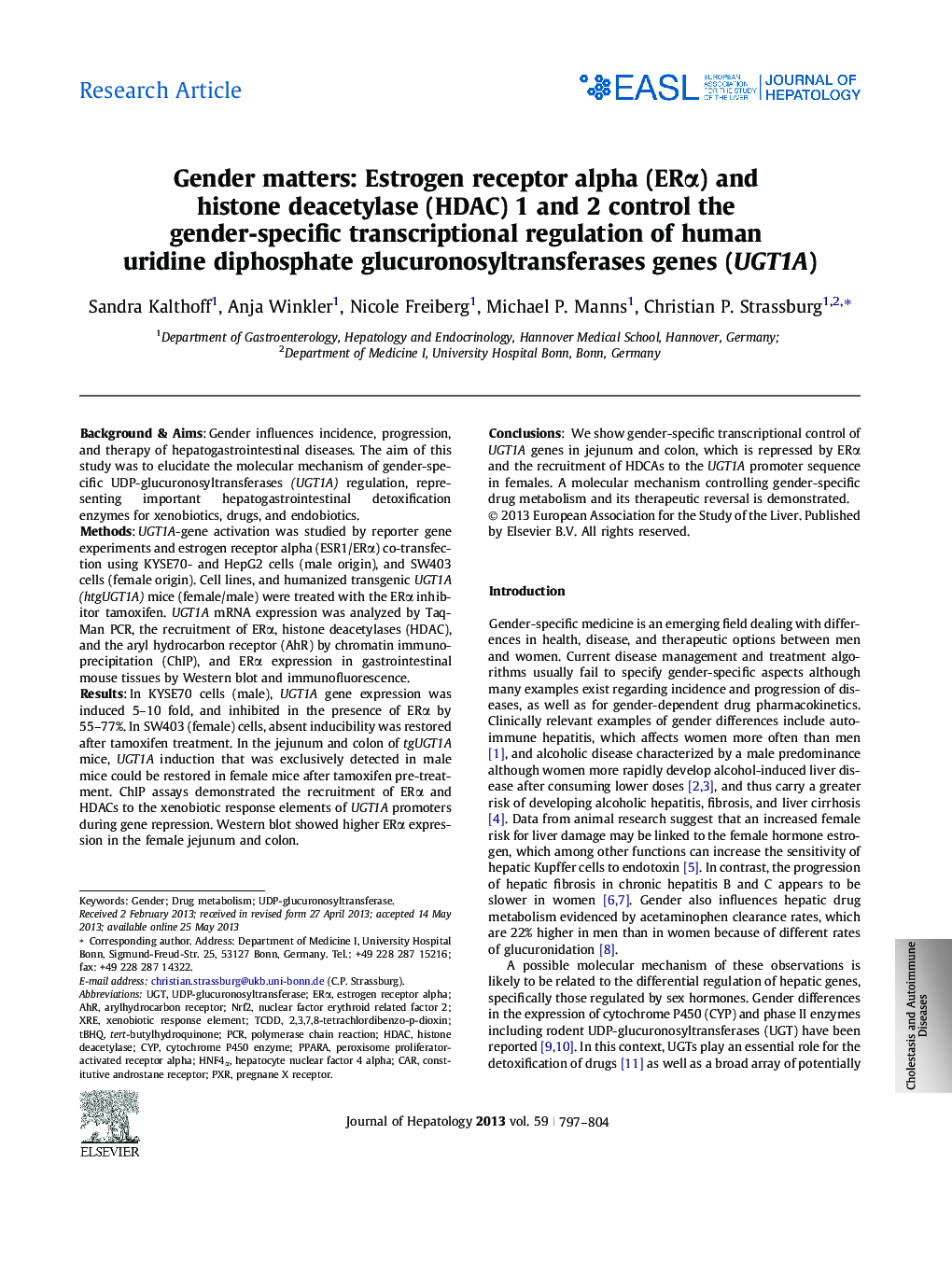| Article ID | Journal | Published Year | Pages | File Type |
|---|---|---|---|---|
| 6103809 | Journal of Hepatology | 2013 | 8 Pages |
Background & AimsGender influences incidence, progression, and therapy of hepatogastrointestinal diseases. The aim of this study was to elucidate the molecular mechanism of gender-specific UDP-glucuronosyltransferases (UGT1A) regulation, representing important hepatogastrointestinal detoxification enzymes for xenobiotics, drugs, and endobiotics.MethodsUGT1A-gene activation was studied by reporter gene experiments and estrogen receptor alpha (ESR1/ERα) co-transfection using KYSE70- and HepG2 cells (male origin), and SW403 cells (female origin). Cell lines, and humanized transgenic UGT1A (htgUGT1A) mice (female/male) were treated with the ERα inhibitor tamoxifen. UGT1A mRNA expression was analyzed by TaqMan PCR, the recruitment of ERα, histone deacetylases (HDAC), and the aryl hydrocarbon receptor (AhR) by chromatin immunoprecipitation (ChIP), and ERα expression in gastrointestinal mouse tissues by Western blot and immunofluorescence.ResultsIn KYSE70 cells (male), UGT1A gene expression was induced 5-10 fold, and inhibited in the presence of ERα by 55-77%. In SW403 (female) cells, absent inducibility was restored after tamoxifen treatment. In the jejunum and colon of tgUGT1A mice, UGT1A induction that was exclusively detected in male mice could be restored in female mice after tamoxifen pre-treatment. ChIP assays demonstrated the recruitment of ERα and HDACs to the xenobiotic response elements of UGT1A promoters during gene repression. Western blot showed higher ERα expression in the female jejunum and colon.ConclusionsWe show gender-specific transcriptional control of UGT1A genes in jejunum and colon, which is repressed by ERα and the recruitment of HDCAs to the UGT1A promoter sequence in females. A molecular mechanism controlling gender-specific drug metabolism and its therapeutic reversal is demonstrated.
